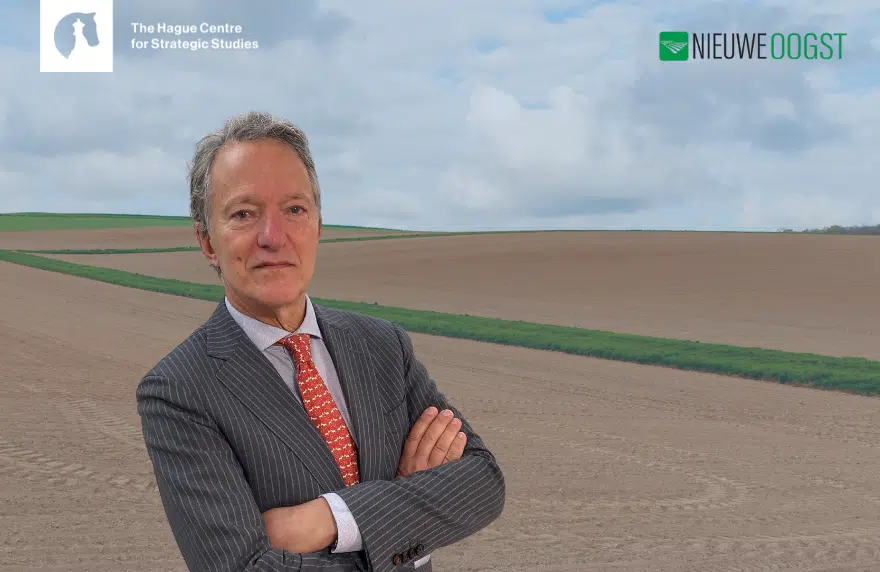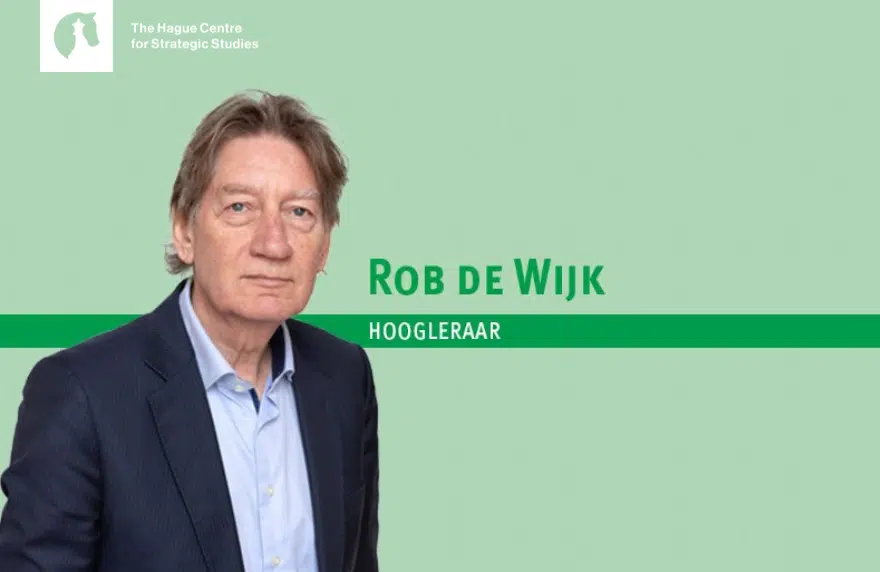Economische schokken, conflicten en klimaatverandering vormen de belangrijkste drijvers van voedselonzekerheid. Dat stelden de panelleden van de Food or Force-discussie tijdens de Wereldvoedseldag op 16 oktober in Den Haag. Zij spraken daar over de wereldwijde uitdagingen rond voedselzekerheid.
Onder de sprekers waren voorzitter Sjoukje Heimovaara van Wageningen University & Research en Food & Agri-adviseur Freek Vossenaar van The Hague Centre for Strategic Studies. De panelleden waren het erover eens dat de Amerikaanse tarieven economische schokken veroorzaken in landen met een sterke agrarische handelspositie, zoals India, Brazilië en Vietnam.
Volgens Vossenaar zijn deze landen kwetsbaar door hun exportafhankelijkheid richting de Verenigde Staten (VS), wat leidt tot onzekerheid en onrust in de wereldhandel. Ook Nederland voelt de impact. ABN Amro raamt dat de Nederlandse landbouwexport naar de VS met 35 procent kan dalen, vooral bij vis (-152 miljoen euro), groente en fruit (-93 miljoen euro) en zuivel (-46 miljoen euro).
Europa en Nederland hebben geen acuut probleem met voedselzekerheid, zegt Heimovaara. ‘Maar we zijn in onze productie kwetsbaar door onze afhankelijkheid van de buitenlandse aanvoer van kunstmest vanuit Marokko en Wit-Rusland en van energie en grondstoffen uit Zuid-Amerika.’ Vossenaar noemt prijsstijgingen, exportverboden, sabotage en politieke spanningen als voorbeelden die de beschikbaarheid van deze inputs kunnen bedreigen.
Afhankelijkheid verkleinen
Heimovaara stelt dat zowel de wijze van produceren als de mate van consumeren moet veranderen om onze afhankelijkheid te verkleinen. Dat heeft als positief bijeffect dat we de negatieve impact op het klimaat wordt verminderd. ‘Dit is een pijnlijk proces, waarbij ons moderne consumptiepatroon gezonder en soberder moet worden. En waarin meer afstemming nodig is tussen de hoeveelheid bemesting en wat de bodem daadwerkelijk nodig heeft.’
Volgens Vossenaar zijn Chinezen strategische langetermijndenkers op veel beleidsterreinen, inclusief landbouw. Waar China nu nog een grote importeur is, moet dit volgens de Chinese leiding in de toekomst grotendeels worden vervangen door binnenlandse landbouwproductie. Factoren zoals vergrijzing, klimaatverandering – waaronder verwoestijning – en het streven naar meer autonomie zijn hierin bepalend.
Een voorbeeld hiervan zijn de hogere invoertarieven op varkensvlees om de binnenlandse productie te stimuleren en beschermen. In 2024 daalde de import van varkensvlees met 30 procent, wat Nederlandse exporteurs direct voelen. Vergelijkbare effecten zijn volgens Vossenaar waarneembaar in de zuivel- en babyvoedingssector.
Controle op grondstoffen
Verder bouwt China strategische voorraden op en vergroot het zijn invloed via investeringen in buitenlandse infrastructuur en kennis, zoals in Afrika. Dat versterkt de controle op grondstoffen en de logistiek en heeft mogelijk gevolgen voor de Europese toegang tot agrarische input.
Het belang van ontwikkelingshulp kwam ook aan bod tijdens de Wereldvoedseldag, ook bekend als World Food Day. Volgens Vossenaar is ontwikkelingshulp bieden, zoals op het gebied van klimaatbestendige landbouw, niet alleen een uiting van solidariteit met de medemens, maar ook een investering in stabiliteit. Door armoede te verminderen en voedselzekerheid te vergroten, neemt de noodzaak tot migratie af. Of zoals het treffend werd verwoord: ‘Met een volle maag gaat niemand reizen.’






